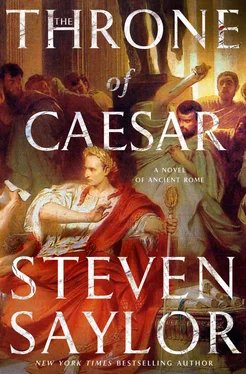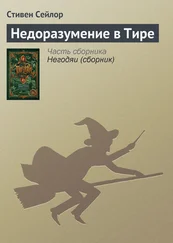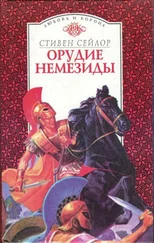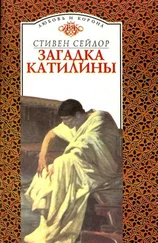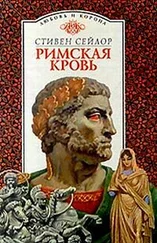Стивен Сейлор - The Throne of Caesar
Здесь есть возможность читать онлайн «Стивен Сейлор - The Throne of Caesar» весь текст электронной книги совершенно бесплатно (целиком полную версию без сокращений). В некоторых случаях можно слушать аудио, скачать через торрент в формате fb2 и присутствует краткое содержание. Год выпуска: 2018, Издательство: St. Martin's Press, Жанр: Исторический детектив, на английском языке. Описание произведения, (предисловие) а так же отзывы посетителей доступны на портале библиотеки ЛибКат.
- Название:The Throne of Caesar
- Автор:
- Издательство:St. Martin's Press
- Жанр:
- Год:2018
- ISBN:нет данных
- Рейтинг книги:5 / 5. Голосов: 1
-
Избранное:Добавить в избранное
- Отзывы:
-
Ваша оценка:
- 100
- 1
- 2
- 3
- 4
- 5
The Throne of Caesar: краткое содержание, описание и аннотация
Предлагаем к чтению аннотацию, описание, краткое содержание или предисловие (зависит от того, что написал сам автор книги «The Throne of Caesar»). Если вы не нашли необходимую информацию о книге — напишите в комментариях, мы постараемся отыскать её.
The Throne of Caesar — читать онлайн бесплатно полную книгу (весь текст) целиком
Ниже представлен текст книги, разбитый по страницам. Система сохранения места последней прочитанной страницы, позволяет с удобством читать онлайн бесплатно книгу «The Throne of Caesar», без необходимости каждый раз заново искать на чём Вы остановились. Поставьте закладку, и сможете в любой момент перейти на страницу, на которой закончили чтение.
Интервал:
Закладка:
Bacchus descended to earth and set foot on the woody slopes of Mount Cithaeron, above Thebes. As he walked toward the city gate, he covered himself with a mist to hide his divinity, especially his horns, from mortal eyes. Despite the royal ban, the streets were thronged by Bacchantes, whose drunken carousing seemed more joyous than threatening. The women had enticed young men to join their celebration, and the men, too, carried ivy-twined wands, wore ivy wreaths and fawn skins, played tambourines and finger cymbals, whirled about and shook their hips. Delighted, Bacchus joined the dance. He appeared to be just another drunken mortal amid the throng.
Pentheus appeared, furious at the debauchery. He called on the men to throw aside their wands and take up swords again, to cast off ivy wreaths and put on helmets. Suddenly ashamed of their uncontrolled behavior and their womanly appearance, most of the men obeyed. Those who came to their senses arrested those who did not—including Bacchus, who allowed himself to be led away in chains. The Bacchantes fled in panic to the woods of Mount Cithaeron.
In his prison cell, Bacchus brooded. What fate would be appropriate for Pentheus? Bacchus recalled the death of Orpheus.…
The chains fell from his wrists. The iron door of the cell sprang open.
The guards, bewildered, took Bacchus to the king. Pentheus demanded to know how he had escaped. Bacchus declared himself a magician and a master of disguise whom no prison could hold. He offered to advise the king in his program to eradicate the frenzied debauchery on Mount Cithaeron. Pentheus decided to trust the smiling stranger.
It was essential, Bacchus said, that the king should first spy on the Bacchantes, to discover their plans and weaknesses. To penetrate the ranks of the Bacchantes, the king would need to pass as one of them. Bacchus replaced the king’s diadem with an ivy wreath, and his scepter with an ivy-wound wand. He took off the king’s royal robes and clothed him in animal hides. He convinced Pentheus to leap in the air, twirl about, and gyrate his hips as the Bacchantes did, and drilled him in these movements until the beardless king could pass as a woman among women.
Bacchus hid his laughter behind his hand. Pentheus meanwhile began to feel strangely elated. From time to time, for only an instant, he thought he caught a glimpse of horns amid the stranger’s curling locks.
Bacchus led Pentheus out of the palace, through the city gate, and up the woody slopes of Mount Cithaeron. They wandered past ancient trees hung with moss, standing stones that seemed to have faces, and drifts of dry leaves that crumbled with a crepitating protest under their feet. Soon they came upon the Bacchantes. Pentheus was aghast at the strange things he beheld. A bull was being sacrificed, but there was no altar and no ceremonial knife. Instead, the Bacchantes killed the creature with their bare hands and tore off its flesh, laughing as they did so. Their mad cachinnations rang through the forest.
Bacchus convinced the king to join in the frenzy. Pentheus at first merely whirled about, mimicking the dance, but then, with mixed loathing and elation, he found himself reaching for the bull, rending its flesh with his bare hands, and devouring pieces of the steaming, bloody flesh. Then Pentheus caught sight of his mother among the screeching Bacchantes and felt ashamed that she should see him in such a state. He turned and ran back toward the city.
The god cast a spell on the Bacchantes, including Agave, so that Pentheus appeared to them as a lion. They ran after the beast, howling as they did so, turning the secret names of their god into a shrill, ululating chant: “Euhan! Euhius! Eleleleus! Euhan! Euhius! Eleleleus.”
As he ran, Pentheus came back to his senses. With mounting terror, he realized where he was, how he came to be there, who had tricked him—and who pursued him.
Agave was first to overtake the lion. She leaped on the beast and brought it down, then tore at it with her teeth and sharp nails, ignoring its bleating cries, which sounded almost human. She gorged on its flesh and drank its blood. The other Bacchantes arrived and tore the limbs from the living body. Using only her teeth and fingers, Agave tore off the head.
Gripping the mane, Agave proudly held the lion’s head aloft. She displayed it to the raving Bacchantes, then ordered them to follow her into the city. They arrived at the gate and ran through the streets, spreading panic. Agave reached the palace, mounted the steps, and turned to face the crowded square. Aghast, the people of Thebes beheld the head of their young king held aloft by his mother, who was covered with gore. Blood streamed from her babbling mouth.
The lips of Pentheus still writhed, as if trying to scream. His wide-open eyes looked this way and that. His face was a mask of utmost te rror. The Thebans could not bear to look at him. The Bacchantes clapped their finger cymbals and howled their ululating chant.
Bacchus arrived. He mounted the steps. He took the head of Pentheus from Agave and peered into the wide-open eyes that stared back at him. Smiling, Bacchus stilled the wriggling lips with a kiss, and with his fingers shut the eyes, allowing Pentheus, who had dared to deny him, the gift of death.
XXIX
Cinna bowed his head. He had come to the end of the poem.
My eyes moved to the statue of Bacchus in the garden. By some trick of illumination—subfuscous moonlight and starlight, flickering torches and braziers—the beautiful face of Bacchus, expressionless before, now seemed very faintly to smile.
With a shiver, I tore my gaze from the statue. Cinna meanwhile had resumed his place on the couch he shared with Decimus, who averted his eyes and drew back slightly as Cinna settled himself. Cinna held up his cup, which was filled by a slave who then disappeared into the shadows. Cinna drained the cup at a single draft, then held it out to be filled again.
There followed a long silence, which became more awkward the longer it lasted. I had no intention of speaking first. I looked at Meto, who would not look back at me. No one in the room seemed to be looking at anyone else, except me—the ever-inquisitive Finder, never afraid to look or listen, only to speak.
Caesar finally cleared his throat, and then spoke. “However did you … I was going to say, ‘find the words,’ but what I truly wonder is, however did you summon the strength to write such a poem? ”
“And the stamina,” added Meto.
“It was the labor of many years,” said Cinna. “And the product of much wine. I never fail to honor Bacchus each and every day. I never stint the god, or myself.”
Caesar shook his head. “You deprecate yourself, Cinna. Here there is no need for modesty, false or otherwise. It’s not just the subject matter, and the power of the scenes—it’s the language. Featherlight yet sturdy as a pyramid. So complex and so obscure at times as to be mind-wounding, yet even then delivering an intense, peculiar sort of pleasure. As beautiful and serene as the face of Bacchus in the garden there, but also … macabre … grotesque, like a…”
“Like a statue of Aesop, perhaps?” suggested Meto. “Withered, hunchbacked, horribly misshapen?”
“If you like,” said Caesar. “As wise as Aesop, too, and yet … there seems to be something almost frivolous hidden inside in the words, something debauched, and rather wicked—yet irresistible … taunting…”
“Like the comminatory smile of Bacchus,” suggested Meto, gazing at the statue.
Caesar nodded.
“Romulus, too, was torn to pieces,” said Lepidus.
“What’s that?” said Caesar, who had become lost in thought.
“I say that King Romulus also was torn to pieces. Or cut up, with sharp knives, I suppose. And presumably beheaded as well. The first king of Rome, all those hundreds of years ago, assassinated by the first senators. So historians tell us. There was a ceremony of some sort, a sacrifice over which Romulus presided, and then a storm broke, so that darkness and rain hid the deed from sight. The assassins killed him, then chopped him up and carried off the pieces under their togas. Nothing was ever found of him.”
Читать дальшеИнтервал:
Закладка:
Похожие книги на «The Throne of Caesar»
Представляем Вашему вниманию похожие книги на «The Throne of Caesar» списком для выбора. Мы отобрали схожую по названию и смыслу литературу в надежде предоставить читателям больше вариантов отыскать новые, интересные, ещё непрочитанные произведения.
Обсуждение, отзывы о книге «The Throne of Caesar» и просто собственные мнения читателей. Оставьте ваши комментарии, напишите, что Вы думаете о произведении, его смысле или главных героях. Укажите что конкретно понравилось, а что нет, и почему Вы так считаете.
